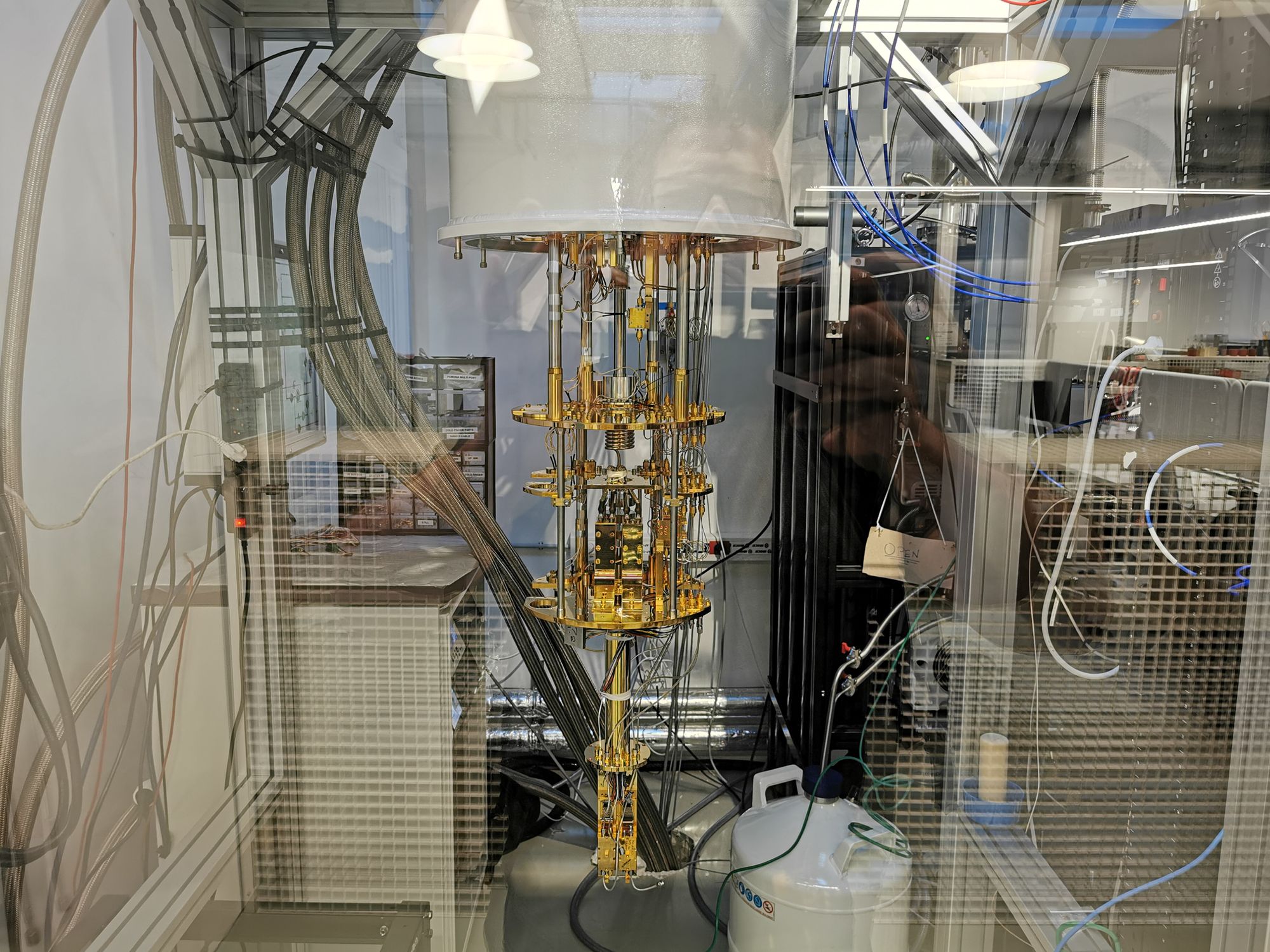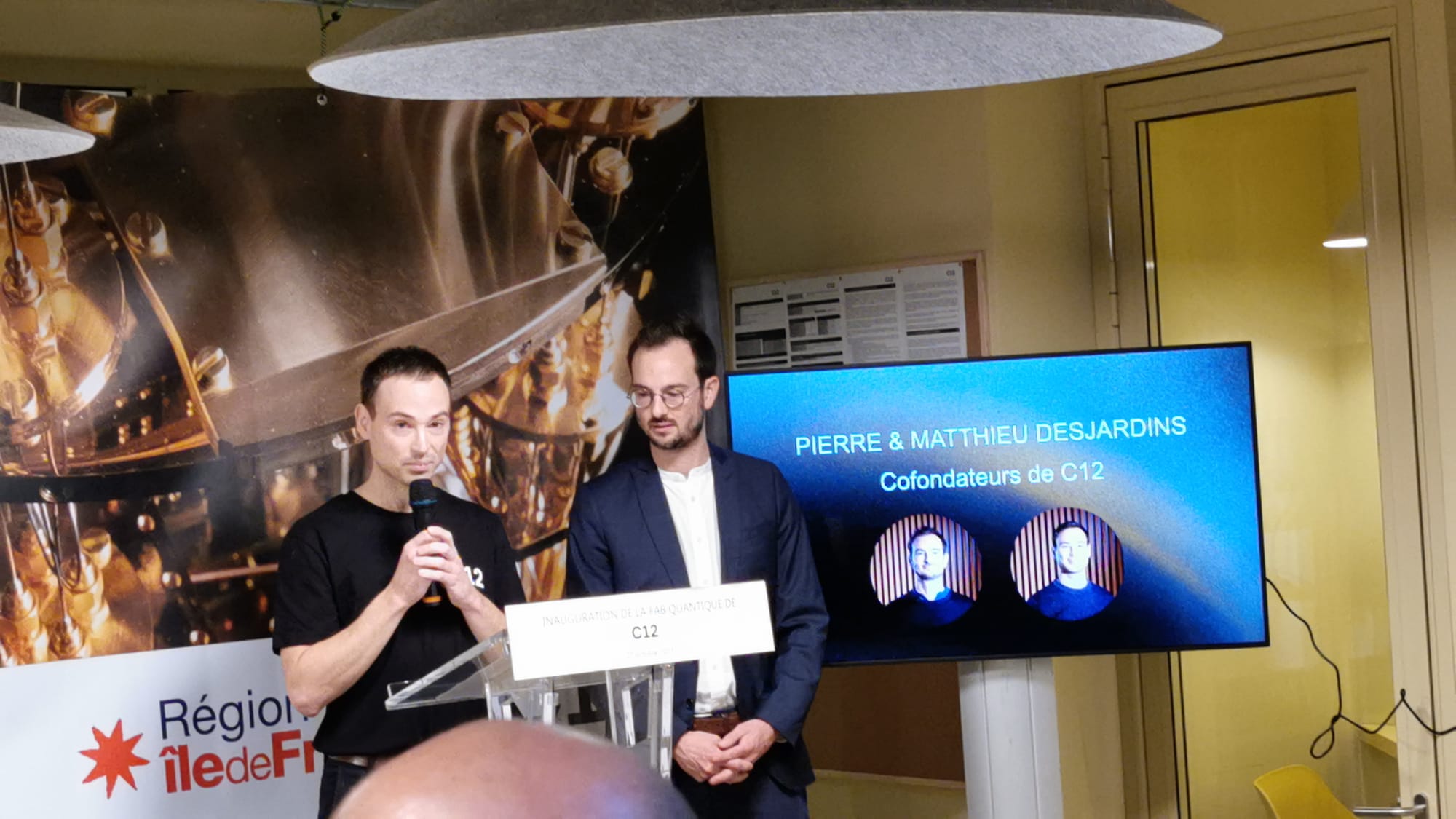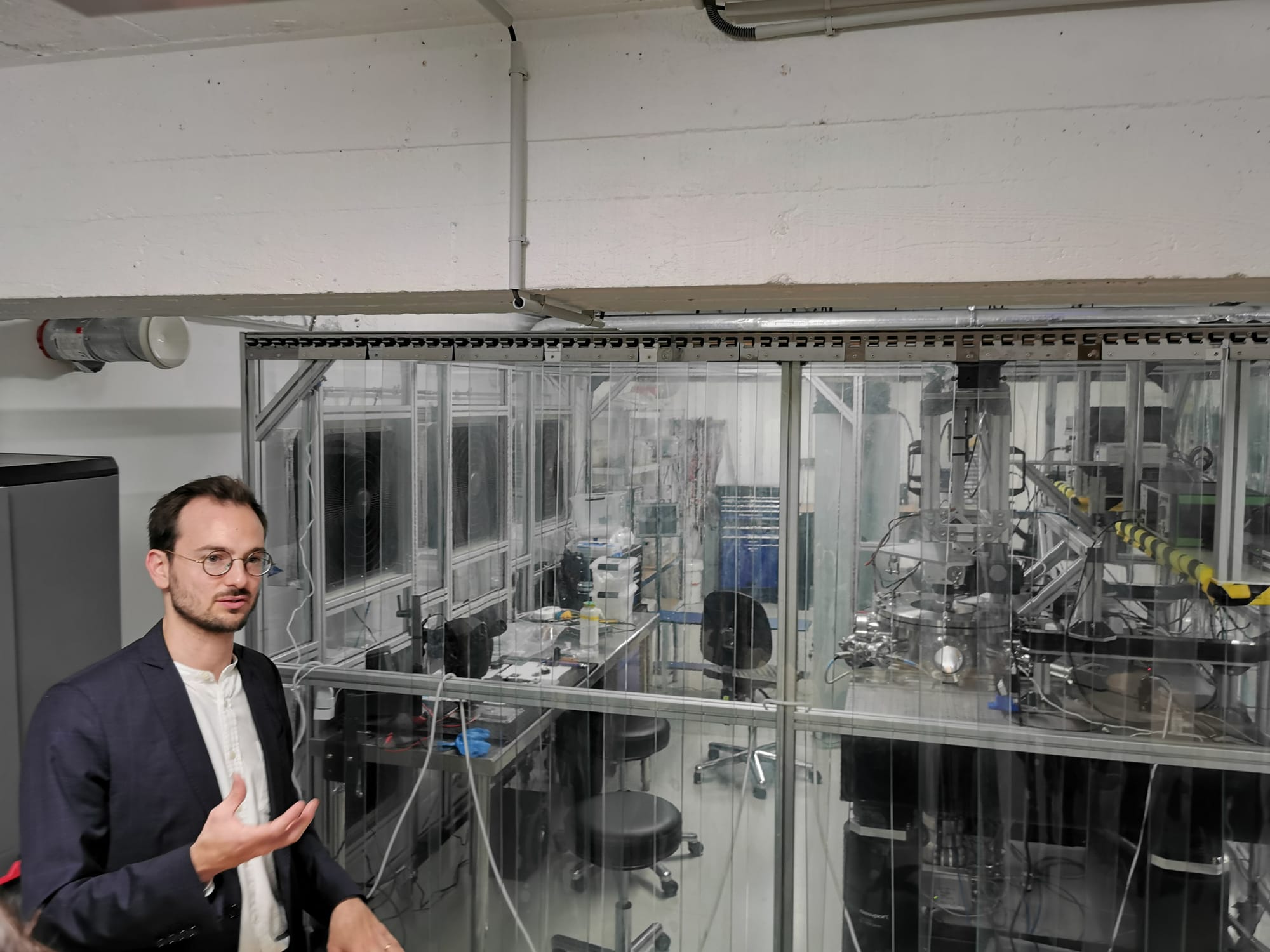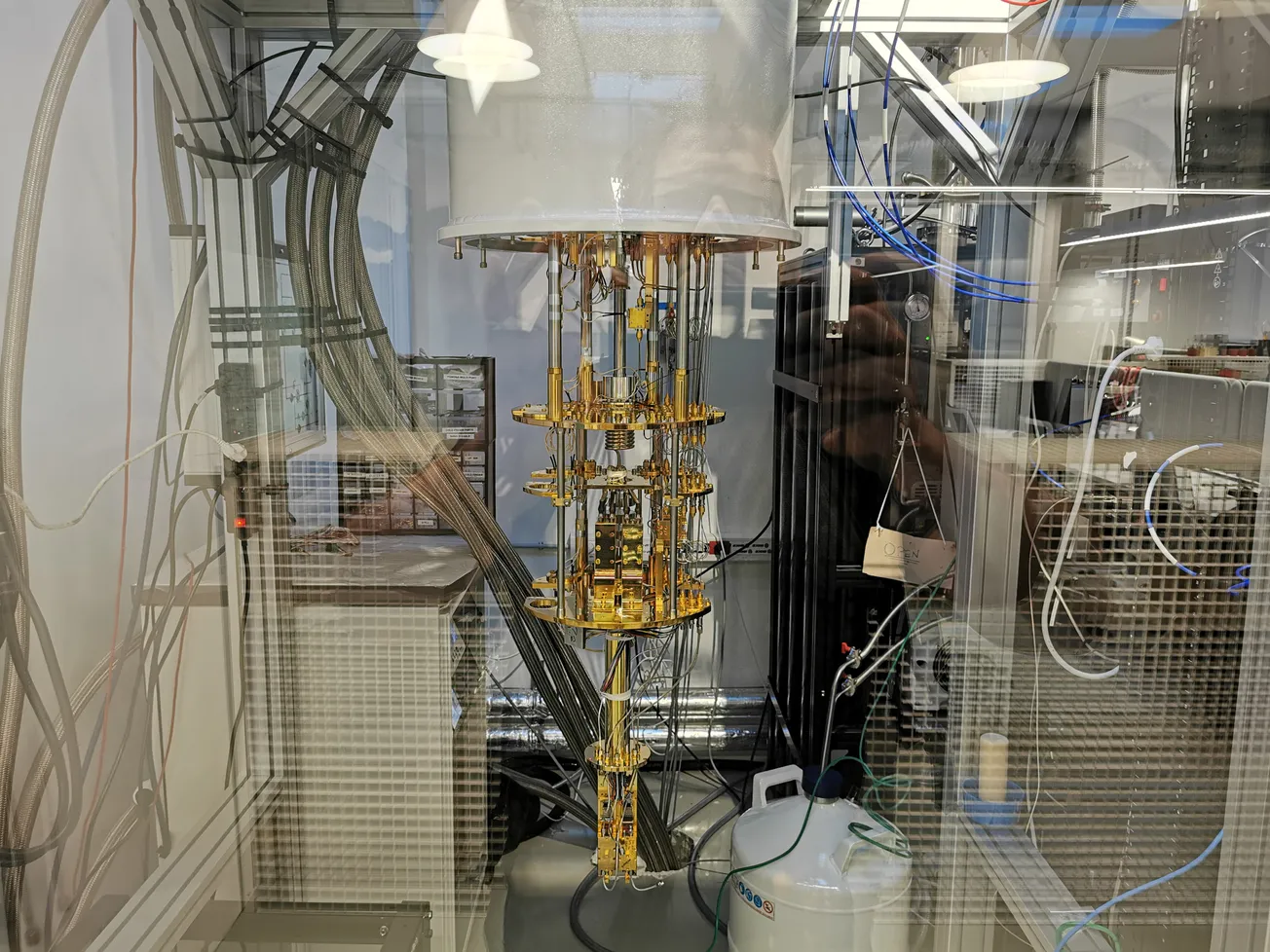Quantum Computing has been hailed as the next major breakthrough in computing, a revolution that could change everything from artificial intelligence to pharmaceuticals, chemistry, and cybersecurity. The French government has identified this as a key innovation sector and has ambitious plans to support Quantum Computing as part of its broader Deep Tech strategy.

Among the most promising players in this space is C12, a French quantum computing startup that has made waves with its unique approach to building quantum processors. Founded in 2020 by twin brothers Pierre and Matthieu Desjardins, the company has set its sights on developing large-scale, fault-tolerant quantum computers using carbon nanotubes — a material they believe will overcome the limitations of silicon.
Last year, the company opened its new testing lab in the heart of Paris at a ceremony attended by local and national government officials. Over the summer, C12 raised a new VC round of €18 million to further its goals.
The company envisions a future where quantum computers are a mainstream tool for solving some of the world's most complex problems. Whether it’s optimizing supply chains, advancing drug discovery, or reducing energy consumption, quantum computers hold the potential to reshape industries and unlock new frontiers of knowledge.
While that promise will take time to be realized, Pierre said large enterprise customers are increasingly exploring the embryonic technology to understand its implications. C12 intends to build a business around helping them prepare for that transition in the short term while accelerating its research to build a commercial-ready quantum computer.
"We have seen in the last few months that these companies want to talk to us to start understanding how this technology will impact their business," Pierre said. "More and more customers would like to invest in this technology. They know that it will take some time. They know it's not a technology that will be produced tomorrow. But they have the right mindset."
From Academia to Industry

C12 is a spin-off from the Physics Laboratory of the École Normale Supérieure in Paris, one of France's premier research institutions.
While Pierre Desjardins brings his entrepreneurial acumen, Matthieu is the scientific powerhouse behind the company, with expertise in quantum physics and material science. Their work was inspired by groundbreaking research conducted at ENS. The pair saw an opportunity to take the findings from the lab to the commercial stage, addressing the immense computational challenges that modern science and industry face.
"We are facing intractable problems," Pierre Desjardins said. "If you want to actually simulate with precision some chemical reactions and also be able to understand how drugs will impact our cells, then you will need quantum computers."
Pierre said the company’s inception was driven by three major factors.
First, the co-founders recognized that many of today's most complex scientific problems, from understanding molecular reactions to simulating material behavior, were beyond the capabilities of classical computers. Second, they observed that traditional semiconductor technology, which underpins today's digital revolution, is reaching its physical limits, particularly when it comes to miniaturization and energy efficiency.
Finally, the environmental impact of computing, especially with the rise of AI, has become a growing concern, and quantum computing promises a more energy-efficient alternative.
"We live in a world of limited resources," Pierre said. "It's very important to find a way to compute using way less energy. We are amazed by AI and LLMs, but they also consume a lot of energy to be trained. In this case, quantum computing can be a great way to reduce our carbon footprint."
Why Carbon Nanotubes?








